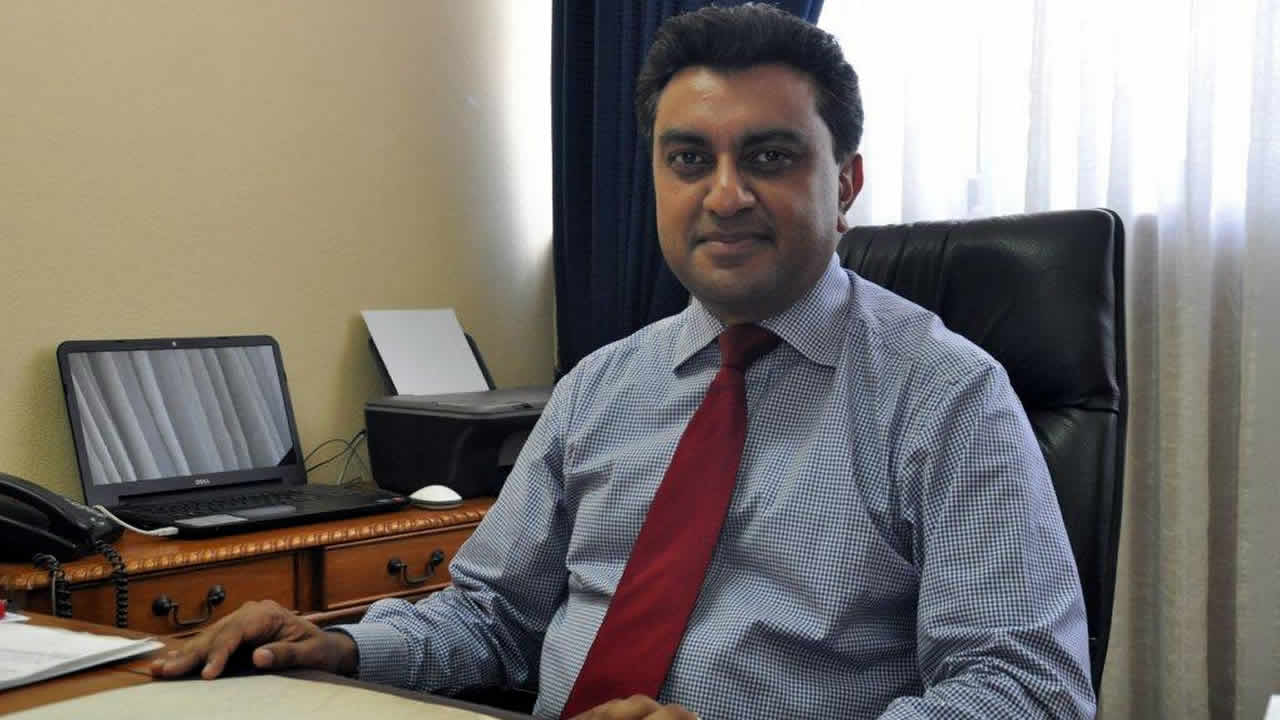
Cameras have recently been installed at most police stations. Private interviews between a Barrister and his client can consequently be recorded and listened to. It follows the logic of Government when we now see surveillance cameras at every nook and corner of the island. Undoubtedly, George Orwell would have said “Big brother is watching you”. There is also reason to believe that conversations between Barristers and their clients in prison can be listened to as they can only communicate through a telephone.
Having cameras installed at police stations raises fundamental human rights issues and turn up some stunning truths. Section 5 (3) of the Constitution states inter alia that when a person is arrested or detained, he shall be afforded reasonable facilities to consult a legal adviser of his choice. Almost six years after the Bill was introduced in the National Assembly the Police and Criminal Evidence Act, which would have explicitly guaranteed rights of suspects, is still being awaited. In its absence, we can only draw inspiration from what is happening in other jurisdictions.
In the United Kingdom, section 58(1) of the Police and Criminal Evidence Act (PACE) 1984 states that when a person is brought to a police station under arrest or arrested at the station having gone there voluntarily, the custody officer must make sure the person is told clearly about the following continuing rights which may be exercised at any stage during the period in custody:
(i) the right to have someone informed of his arrest,
(ii) the right to consult privately with a solicitor and PACE also provides that whenever a detainee exercises his right to legal advice by consulting or communicating with a solicitor, he must be allowed to do so in private.
This right to consult or communicate in private is fundamental. If the requirement for privacy is compromised because what is said or written by the detainee or solicitor for the purpose of giving or receiving legal advice is overheard, listened to, or read by others without the informed consent of the detainee, the right will effectively have been denied. Lord Taylor observed in R v Derby Magistrates’ Court, Ex parte B(1996)AC 487,507 that a man must be able to consult his lawyer in confidence, since otherwise he might hold back half the truth.
The importance of an accused being able to confer with his lawyer in private has been emphasized in a number of cases from Strasbourg. Both articles 6 and 8 of the European Convention on Human Rights may be engaged. In S v Switzerland, the European Court of Human Rights stated: an accused’s right to communicate with his advocate out of hearing of a third person is part of the basic requirements of a fair trial in a democratic society and follows from Article 6(3)(c) of the Convention. If a lawyer were unable to confer with his client and receive confidential instructions from him without such surveillance, his assistance would lose much of its usefulness, whereas the Convention is intended to guarantee rights that are practical and effective. Should the police either deliberately or inadvertently listen to, or record without the suspect’s consent, a telephone call in which legal advice is dispensed; Article 6 is prima facie infringed. The second Convention article is potentially engaged when privacy is compromised. Article 8 guarantees everyone ‘the right to respect for his private and family life, his home and his correspondence’.
The confidentiality of communications with legal advisers is implied in the notions of both ‘private life’ and ‘correspondence’. In Foxley v United Kingdom, the European Court of Human Rights stated: that the lawyer-client relationship is, in principle, privileged and correspondence in that context, whatever its purpose, concerns matters of a private and confidential nature. Similarly in Erdem v Germany, it was stated: It is clearly in the general interest that any person who wishes to consult a lawyer should be free to do so under conditions which favour full and uninhibited discussion. It is for this reason that the lawyer-client relationship is in principle privileged. Listening without consent to a telephone conversation between a suspect and their legal adviser or recording the consultation on CCTV prima facie breaches Article 8.
In New Zealand, Section 54 of its Evidence Act 2005 provides for the privilege of communication with legal advisers. Such a privilege applies to communication between a lawyer and a client and is intended to be confidential where it is for the purpose of obtaining legal advice. Some Canadian courts take a similar approach when it is alleged that section 10(b) of the Canadian Charter of Rights and Freedoms has been breached because police could have overheard a legal consultation.
As stated above, private interviews whereby a Barrister receives confidential instructions from his client are basic requirements of a fair trial as very little is cut and dried at the time of trial. This practice should be safeguarded under whatever circumstances. Seeing the current state of affairs, our Human Rights Commission cannot hide under the blanket of silence. Video recording may appear to safeguard against torture and abuse but at the same time due consideration should be given to the protection of a person’s rights, privacy and dignity. To ensure confidential and privileged communication, places where meetings with lawyers take place should no longer be subject to video recording.
By Yatin Varma
 J'aime
J'aime














